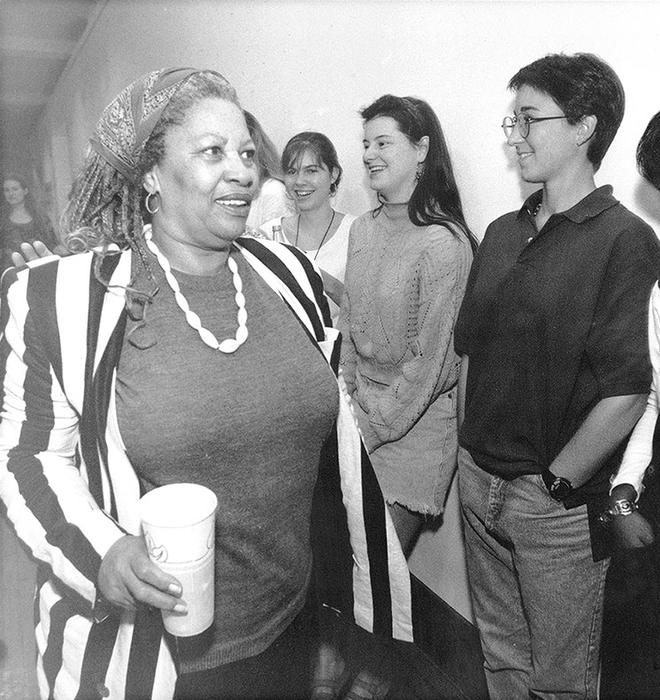
Reflections About Toni Morrison
PAW asked several Princetonians for their reflections about Toni Morrison. See below for additional links to essays by alumni and faculty.
PAW ASKED SEVERAL PRINCETONIANS for their reflections about Toni Morrison. See below for additional links to essays by alumni and faculty.
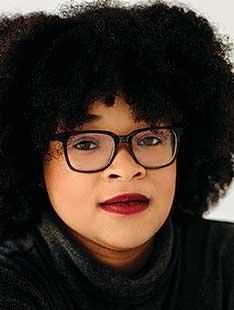
By Morgan Jerkins ’14
I found out about Toni Morrison’s passing while I was just a few minutes away from my job. I was checking the news on my phone, and when I saw her image within an announcement of her death in New York magazine, I immediately entertained the thought of pivoting my heel to go back home. Not Toni Morrison, I thought. We need her. In a time of heightened white supremacy, domestic terrorist attacks, and gaslighting of our nation’s history, Morrison’s prose has always been a lighthouse in the dead of night. I watched and reviewed the documentary of her life and career in June, and I was floored by how powerful a woman she was in scope and versatility.
Morrison showed the world that black life is full of vibrancy without the white gaze clouded over us. Her unforgettable characters and their stories across the American landscape will stay with us forever. I am thankful, as a black woman of arts and letters, that Morrison and her work existed. I am thankful that Toni Morrison was privileged enough to receive her flowers while she was living, when many, many other black female artists and their lives have been lost to the shadows and are in desperate need of recovering. Even now, I cannot believe she’s gone, but Morrison is never entirely gone. Her prose remains with us, and in a way, has made her immortal.
Morgan Jerkins ’14 is an author, journalist, editor, and professor. Her debut essay collection, This Will Be My Undoing: Living at the Intersection of Black, Female, and Feminist in (White) America, was published in 2018.
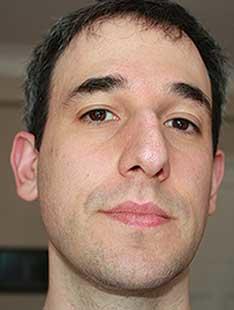
By Jacob Sager Weinstein ’94
In my junior year of Princeton, I took Professor Morrison’s Long Fiction seminar. She was a best-selling author and a Pulitzer Prize winner, and was frequently mentioned as a Nobel candidate. More than that, I had read her books. I knew what she could do as a writer. To say I was intimidated would be an understatement.
At least, I was intimidated walking into her classroom. By the time I walked out, she had somehow convinced me that I had the right to sit in a room with her and learn from her, and most improbably of all, to contribute something to our conversation. Decades later, I’m still not sure how she pulled off that particular conjuring trick.
It had something to do with the matter-of-factness with which she talked about her own work. She struggled with opening scenes, she said. She’d start writing a novel and, halfway through, realize she had begun it in the wrong place.
And it had something to do with how she talked about the stories we wrote for her. Of course, she found things to improve. But she also found things to delight in, so that we felt them worth improving.
More than any one thing she said, though, it had to do with the tone she set. She spoke to that roomful of students, decades younger and vastly less skilled than she, as though we were her respected colleagues.
Needless to say, I had not earned that respect with my inept, inexperienced writing. If I had earned it through anything, it could only be my status as a fellow human being. If you’ve read her books, you know Toni Morrison’s endless empathy for our broken, joyful, struggling species. Receiving that empathy first-hand was the best of that semester’s many gifts.
Jacob Sager Weinstein ’94’s most recent book is Lyric McKerrigan, Secret Librarian.

By Kate McQuade ’03
I have few memories of 9/11 that haven’t been replaced by images I’ve seen a thousand times on TV screens. But one memory I’ve held onto is standing in a crowd on Cannon Green, feeling lost and confused at a schoolwide vigil, and listening to Toni Morrison read a poem addressed to the dead of September 11.
I was a junior. The light that day was bright and golden, the sky cloudless — it might have been the cruelly beautiful afternoon of 9/11, but I’m pretty sure the vigil was a few days later. (The facts matter less to me than the feelings I remember; I think anyone who has read Beloved knows that sometimes memories take on a life of their own, that they can end up meaning more than facts.)
What I remember feeling, as Morrison read her poem very slowly and deliberately, was something going calm across the crowd. It wasn’t comfort. Just calmness: a quiet, charged awareness that we were facing a terroristic power whose scope was still beyond us. Mortality, maybe. Hate, maybe. History, maybe. Whatever it was, her words reminded us that speaking up mattered, even — perhaps especially — in the wake of unspeakable loss.
Since Morrison’s passing, I’ve been thinking a lot about what she taught me — as a writer, as a teacher of writing, as a white person living in a country that grants me undue privilege because of my skin. Most of all, she taught me the importance of speaking up. Of addressing not just external evils, but also those seeded among us, in a country where terrorism is just as often domestic and where racially motivated discrimination and violence find enduring roots in a national history that must also be addressed.
She reminded me there on Cannon Green, and many times since in her novels, of the multifaceted power of language: a way to both honor the dead and push against those who threaten the living. There was no better example of who we should all be as Americans.
Kate McQuade ’03 is the author of Tell Me Who We Were, which was published by William Morrow in July.
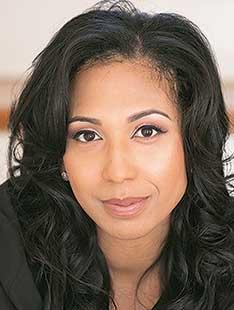
By Leah Wright Rigueur *09
When I was a graduate student at Princeton University in the early 2000s, one of my most potent memories is of sitting in on Cornel West and Eddie Glaude’s class on the black intellectual tradition; on this day, our guests were Morrison, the actress Phylicia Rashad, and Jay-Z (Shawn Carter). Turning to Carter, West asked the rapper to comment on his musical catalog, his lyrics, and race in America. Jay-Z vigorously shook his head, laughed, and responded: “Why should I talk when Toni Morrison is here? She’s the one who taught me. I need to learn from her.” The room broke out in laughter born from a shared understanding that Morrison was our translator, our teacher, our literary great, our canon.
READ MORE
• The Place of the Idea; The Idea of the Place
• Rally ’Round the Cannon: The Idea of the Person
Long before I became a professional historian, Morrison put me through a master class in doing history imaginatively, reassuring me that the careful excavation of stories that unapologetically center black life and community was, and still is, a revolutionary act, especially for a black woman in America. “I write what I have recently begun to call village literature,” she once noted. “Fiction that is really for the village, for the tribe. ... I think long and carefully about what my novels ought to do. They should clarify the roles that have become obscured; they ought to identify those things in the past that are useful and those things that are not; and they ought to give nourishment.” Morrison told us to explore that which is foreign, and to wrestle with both the beautiful and the horrifying parts of blackness, and to do it with clarity, love, and empathy. She constantly reminded us that writing us “whole,” in all our intricacies and silences, was a necessary part of freedom. She leaves a legacy of limitless possibility, for our community, our liberation, and for us: “The vitality of language lies in its ability to limn the actual, imagined, and possible lives of its speakers, readers, writers.”
Leah Wright Rigueur *09 is an associate professor of public policy at the Harvard Kennedy School and the author of The Loneliness of the Black Republican: Pragmatic Politics and the Pursuit of Power. This is an excerpt from an essay that appeared Aug. 9 in The Washington Post.
By Susan Wheeler
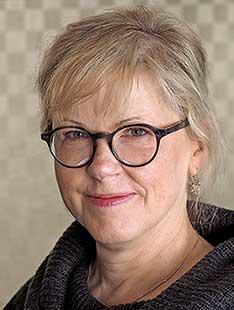
By the time I began teaching at 185 Nassau, Toni Morrison, in the hive of her Atelier program, was spared the joys of faculty meetings and so some years passed before I met her. But she had, through her novels, been my teacher — about language, about what needed writing, about language’s “deference to the uncapturability of the life it mourns.”* I had studied the sentences and the images of Sula as though it were a sonnet.
I had lived in Chicago when it elected its first black mayor, Harold Washington, and in a final moment before big-box stores, cellphones, and digital music blanketed every city. For a long while I had wanted to write that moment and, within that fiction, to stay with a voice based in part on the voice of a man who ran a basement record store I had frequented. I am white so there had to be a white narrator, but I didn’t want the man living only in the white character’s racial imagination, and I didn’t want what Skip Gates named the “Magic Negro,” the black character present only to save a white one. If I gave him his own narration — not a counterpart but a life making the white girl and her racial fixation superfluous — I felt it would only be justified if I could write it “perfectly.” And, of course, I couldn’t, so I stalled.
Then Toni Morrison was awarded the Nobel Prize, and in her acceptance speech I read, “Make up a story. Narrative is radical — creating us at the very moment it is being created. ... We know you can never do it properly — once and for all. Passion is never enough; neither is skill. But try.”* I pinned this to my desk and hobbled into the morass.
I feared it was done improperly, abysmally, but a decade later, my narrative was done. I still hadn’t met Toni when my publisher sent her the novel’s galleys for her comment; blurbs came in from others and the book went to press. One Saturday morning I ignored a 7 a.m. phone call. It was Toni, calling the number beside the publisher’s — mine — to leave a message: She regretted having taken so long and hoped that the publisher could use her comment, in which she said my “flawless ear ... produced an irresistible work.” I had to listen again to believe it. A decade’s fear lost half its heft in a moment.
In the years following I at last met Toni and spent several occasions both tongue-tied and laughing in her presence: She relished her own considerable humor in a way that upped its delivery. That she was here, at Princeton — an embodied teacher for her students in addition to the way her art teaches the rest of us — still thrills me.
Princeton professor Susan Wheeler is the author of a novel, Record Palace, and six books of poetry.
More Reflections by Alumni and Faculty
Michelle Obama ’85: “We Belong, She Showed Us…”
(From The Washington Post)
Troy Patterson ’96: On Morrison’s “Indelible Substance”
(From The New Yorker)
Professor Tracy K. Smith: Her “Epic and Poetic” Stories Inspired Writers
(From The New York Times)
Moshin Hamid ’93: On the “Honor” of Being One of Morrison’s Students
(From The New York Times)
Elena Sheppard ’09: “The Reason I Wanted to be a Writer”
(From Yahoo!)
President Eisgruber ’83: “She Revised This University”
(From WHYY)






No responses yet